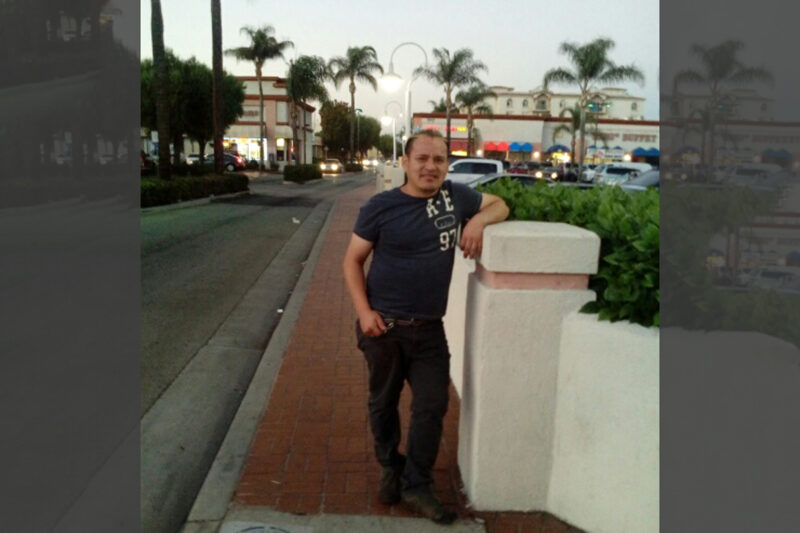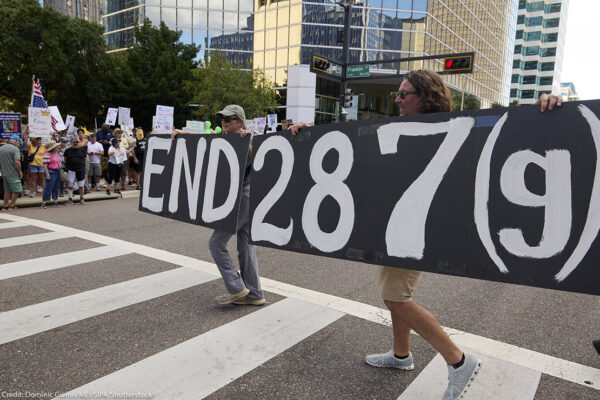New ACLU Report Reveals How the Trump Administration is Using Local Police to Build a National Deportation-Policing Force Through the 287(g) Program
WASHINGTON — The American Civil Liberties Union (ACLU) today released a new report, Deputized for Disaster, detailing how the Trump administration is drastically expanding the federal 287(g) program to transform state and local law enforcement into a national deportation policing force — fueling racial profiling, civil rights violations, and widespread fear in communities across the country.
The report examines the impact of 287(g) agreements in nearly two dozen states and finds that the Trump administration’s misuse of the 287(g) program has extended Immigration and Customs Enforcement’s (ICE) reach into everyday policing. As a result, local officers are being used to carry out “show me your papers” immigration enforcement — often during routine traffic stops — eroding constitutional protections, undermining public safety, and diverting limited local resources away from core law enforcement responsibilities. These actions reflect a broader pattern of abusive and unconstitutional immigration practices by ICE, Border Patrol, and their partner agencies playing out nationwide.
“ICE is enlisting thousands of state and local police to assist in operations that endanger citizens and noncitizens alike, draining local police resources and driving public fear that any interaction with local law enforcement could lead to violence and abuse,” said Naureen Shah, director of policy and government affairs for immigration at the ACLU and author of the report. “It has never been more dangerous to join ICE’s 287(g) program, both for the communities that fall into ICE’s grip by taking part, and the local law enforcement agencies that risk lawsuits and an enormous loss of public trust. The harms outlined here should serve as a warning to state and local elected officials contemplating joining this dangerous program.”
Deputized for Disaster documents a sharp escalation in both the scale and severity of the 287(g) program during the second Trump administration, particularly in Florida, where the program’s expansion has been among the most aggressive and far-reaching. The report finds that Florida has devoted more state and local law enforcement resources to immigration enforcement than any other state, including the entire corps of the Florida Highway Patrol, and regulatory agencies charged with conservation and wildlife protection, and university police. As a result, in parts of Florida, non-citizens and their family members are afraid to travel on highways, go to school and continue working, due to a pervasive and real threat that local police are using traffic stops and highway checkpoints to funnel people to ICE.
At least 17 state highway police have enlisted in ICE’s program, and many have set up checkpoints in collusion with ICE. In Louisiana, agencies like the state marshal have enlisted in the program, raising concerns that even a routine administrative interaction with the government could lead to deportation.
Congress authorized the 287(g) program in 1996, permitting the federal government to delegate certain federal immigration enforcement responsibilities to designated state and local officers, subject to training and close supervision by federal officials. The report finds that the Trump administration has gone far beyond that intent, drastically expanding and repurposing the program. At the start of his second term, just 133 state and local law enforcement agencies participated in 287(g). Since then, ICE has signed an additional 1,079 agencies to the program, with some agencies signing multiple agreements. At least 77.2 million people — 32 percent of the country — are now living in a county with a local law enforcement agency that has enlisted in ICE’s program.
This drastic expansion has also sparked backlash, alongside increasing outrage and disapproval of ICE and Border Patrol’s abuses. The report documents law enforcement agencies, cities and states withdrawing from the program in response to public concern, including in New Mexico, Maryland, Maine and Delaware — which passed legislation to ban the program in recent months.
Deputized for Disaster builds on the ACLU’s research documenting abuses tied to the 287(g) program and outlines concrete steps that cities, counties, law enforcement leaders, and state officials can take now to reduce harm and prevent civil rights violations wherever the program remains in place. Key recommendations to states and cities include:
Ban or withdraw from 287(g) program: In light of the risk of racial profiling and other civil rights violations, prohibit involvement in ICE’s program — particularly the Task Force Model.
Assess legal and financial risk: Conduct legal liability and insurance assessments, financial impact evaluations, staff and resource impact assessments, and other studies.
Limit scope of participation: Restrict involvement in the program, particularly the Task Force Model, by specifying the number of officers who will be deputized and the types of situations in which they will participate.
Strengthen oversight: Require supervisory pre-approval for actions in response to federal agents’ requests for assistance.
You can read the full report and findings here: https://www.aclu.org/publications/deputized-for-disaster





